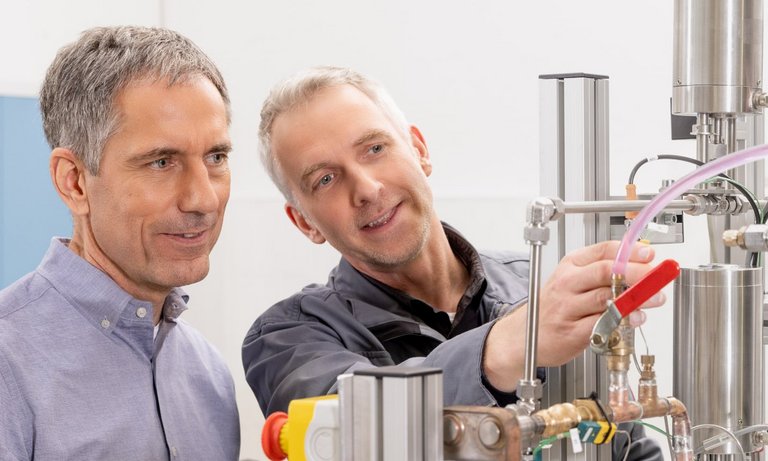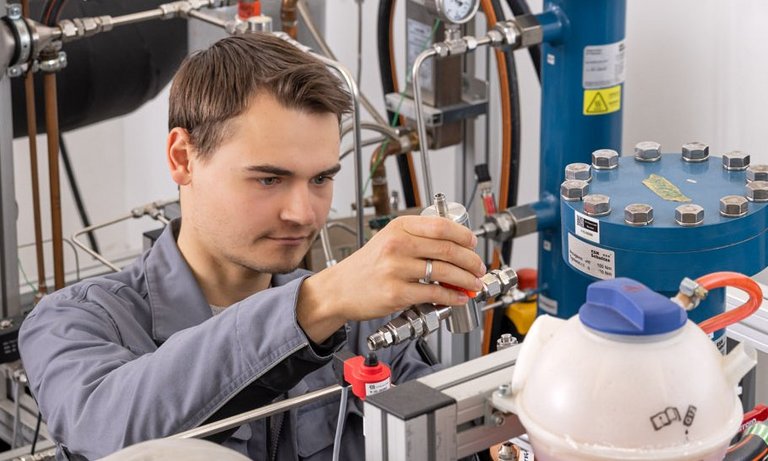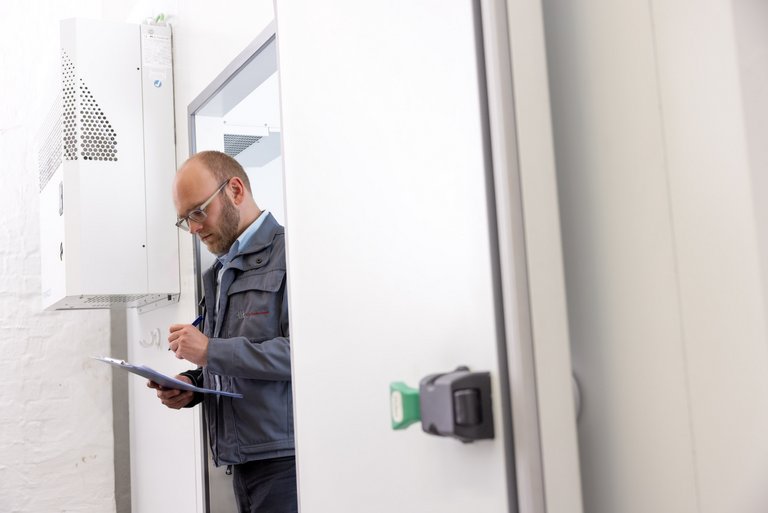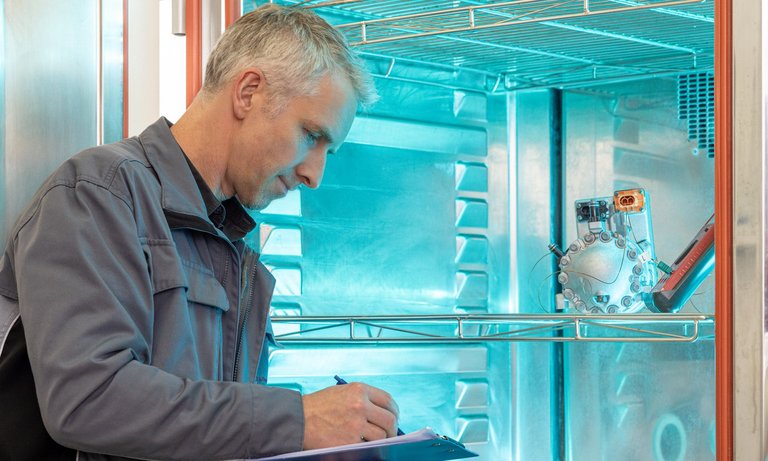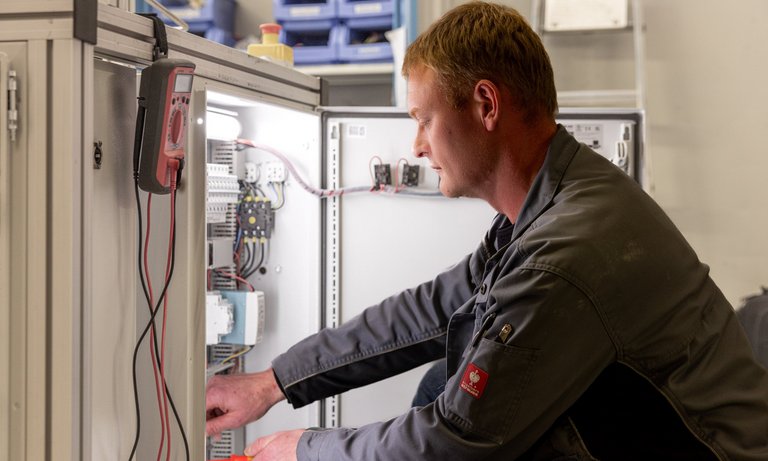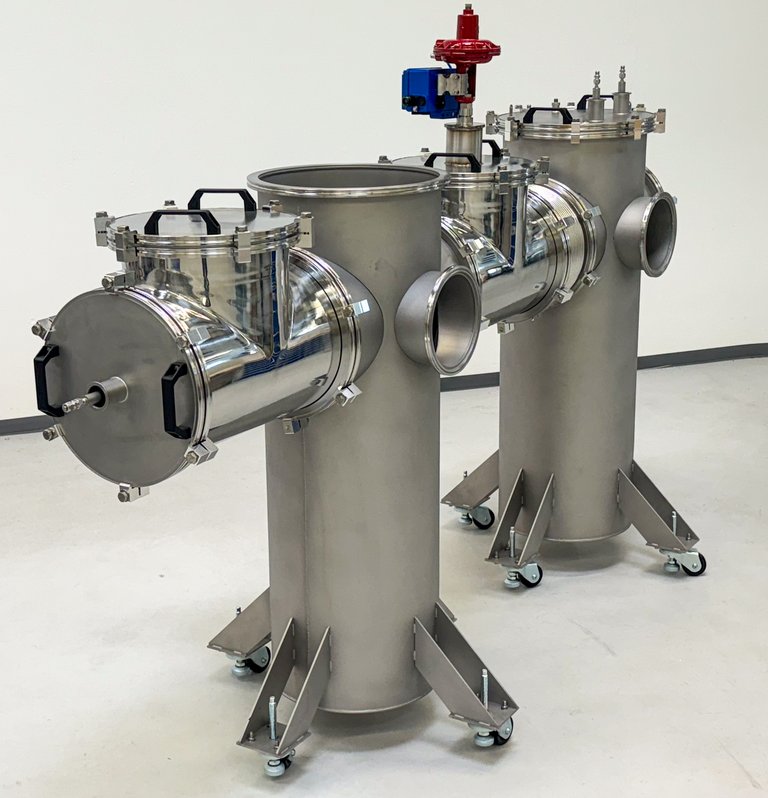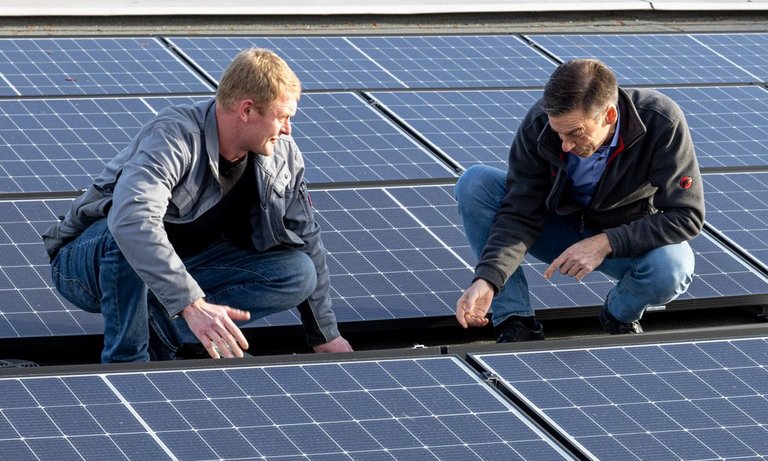Measurement
TLK-Thermo develops and operates a large number of our own test benches. Here we examine components and systems from the fields of vehicles, heat pumps, battery and fuel cell systems, thermoelectrics, elastocalorics, and others. We perform experimental studies and measurements on vapor compression systems using the refrigerants R-744 (CO2), R-290 (propane), R-1234yf, R-513A, R-134a, and others. With our customized test benches, we offer our customers individual solutions, detailed measurement data, physically sound analyses, and expert interpretations.
We examine the individual components of thermal systems in detail. For our customers we carry out measurements for design and development of new components as well as for characterizing existing components.
Our test benches enable us to examine in detail every component of a vapor compression process for mobile or stationary applications with the refrigerants R-744, R-290, R-1234yf, R-513A, R-134a, and others. In addition, we examine components outside of the refrigeration cycle, such as pumps or fans.
- Refrigerant compressors: performance measurements, efficiency measurements, indicator diagrams, endurance tests, wet start up behavior, investigation of oil circulation
- Heat exchangers: performance measurements, pressure drop measurements, dynamics investigations, parasitic heat losses (e.g. in complex compact heat exchangers), icing and frosting investigations on evaporators including defrosting strategies, investigation of refrigerant distribution
- Battery: heat conduction properties of thermal separation layers in vehicle batteries, cooling structures for vehicle batteries
- Fuel cell: investigation of water transport properties of membrane humidifiers
- Expansion and shut off valves: setting accuracy, hysteresis, repeatability, service life, pressure losses
- Accumulators: separation characteristics as a function of level and mass flow, analysis of dynamics, oil retention
- Leakage measurements: Determination of external long-term leakage of refrigerant-carrying components in special pressure chambers, determination of internal leakage as a function of differential pressure
- Explosive decompression: investigation of the effects of abrupt depressurization on materials and components that may store refrigerant
- Other components: Flow characterization in smoke detector systems, endurance characteristics of electric pumps, water absorption by polymers
In addition to individual components, we also investigate overall systems and subsystems. Our focus is on thermal management systems in vehicles as well as stationary heat pumps.
Thermal management systems in vehicles
Electrification of the powertrain of passenger cars requires comprehensive consideration of the thermal systems used. For example, heating, cooling, and dehumidification of the passenger compartment affect vehicle range, batteries must be heated and cooled, particularlyduring fast charging, and components requiring cooling are simultaneously potential heat sources for heating applications.
The systems we investigate are often highly flexible and switchable and thus require a complex integration into universally applicable test benches. In accordance with these requirements, our system test benches have the following features:
- High adaptability to different systems and subsystems
- Flexible control of the systems via CAN/LIN control, an internal controller from the vehicle, and/or in-house software
- If required, geodesically correct arrangement of the components according to the arrangement in the vehicle
- Cooling and heating operation (also combined) from approximately -20°C to 60°C
Stationary heat pumps
Stationary heat pumps are playing an increasing role in heating and air conditioning of buildings. At TLK, we investigate heat pumps for building applications in our climate chambers with the aim, for example, of performing system optimization or the validation of models.
Other technical cooling applications
In our laboratories we have the possibility to investigate various thermal systems. Our experience ranges from control cabinet cooling to portable air conditioning units.
At TLK, we combine in-depth understanding of thermodynamic relationships with many years of experience in the construction and operation of special test benches. This enables us to develop creative and at the same time solid and resilient test bench concepts even for difficult measurement tasks. Before we build our test stands, the underlying concepts are tested and optimized with our simulation software TIL Suite.
Together with our customers, we plan our measurements using specifications and DoE methods. From the very beginning, the design and development of a test bench concept is closely linked to the specific requirements of our client. Examples of customized measurements already carried out at TLK include:
- Investigations into heat pipes and natural circulation systems in various application areas, e.g. battery cooling and defrosting processes
- Detailed non-invasive investigations into refrigerant accumulators under real operating conditions
- Characterization of the water transport properties of membrane humidifiers in fuel cell systems
Automated Measurements
Automated Tracing of Steady-State Measurement Points and Transient Load Profiles
Thanks to our extensive experience in the field of control engineering and our understanding of thermodynamic relationships, seamless autonomous monitoring while maintaining critical boundary conditions is generally possible even for complex load profiles. Depending on requirements and complexity, our test benches can often be fully automated, enabling 24/7 operation.
Using our own software products, we can also create and send automated measurement reports on a regular basis if desired.
Examples of automated test benches and measurements we have successfully carried out include:
- Various endurance test benches for compressors
- Membrane humidifier for fuel cells in 24/7 continuous operation under imposition of thermal stress as well as investigation of aging
- Pump endurance test benches
- Leakage measurements in components
- Investigation of explosive decompression after continuous exposure of components to R-744
Hydrogen is an important building block for future energy needs. At the same time, it is also an energy carrier and raw material for industry, and its importance is currently increasing enormously in many application areas. At TLK, we are preparing laboratory space that will allow us to carry out experimental work with hydrogen to complement the investigations we currently carry out with simulation. The first application will be a laboratory facility - developed together with the Institute for Thermodynamics at the Technical University of Braunschweig - for the production of cryogenic (approx. -250°C) liquid hydrogen under atmospheric pressure. The hydrogen that is generated will subsequently be used as a working medium for the examination of components (valves, sensors, power electronics, superconducting components, etc.).
At our headquarters in Braunschweig we have approximately 1500 m² of laboratory area. Supported by our in-house mechanical and electrical workshop, we plan, build, and operate a variety of system and component test benches. During measurements, these are either closely monitored by our team or run autonomously in 24/7 continuous operation.
A part of the energy demand of our test benches is covered by our own PV system installed on the laboratory roof. To the extent possible, we couple – in an energy efficient way – the cooling generated in some processes with the required heat for others.
We are currently planning to further expand an external laboratory where we will be able to perform measurements on hydrogen systems.
